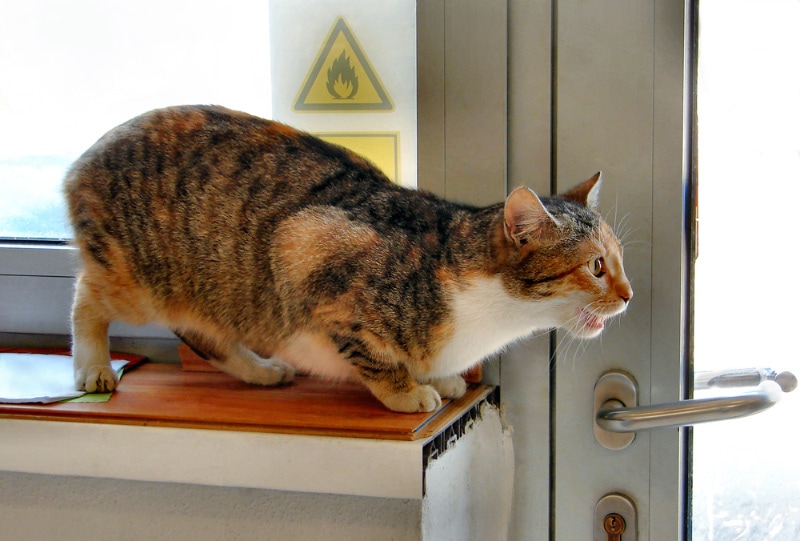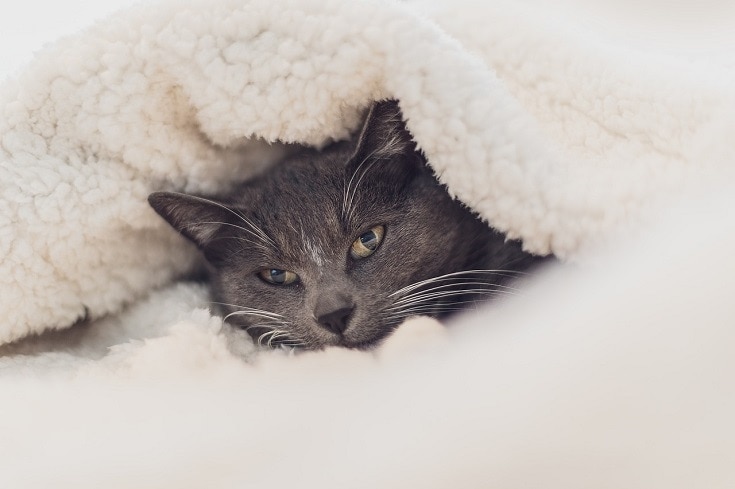How to Keep Your Cat’s Teeth Clean: 8 Vet Approved Tips
By Shana Loven
Updated on
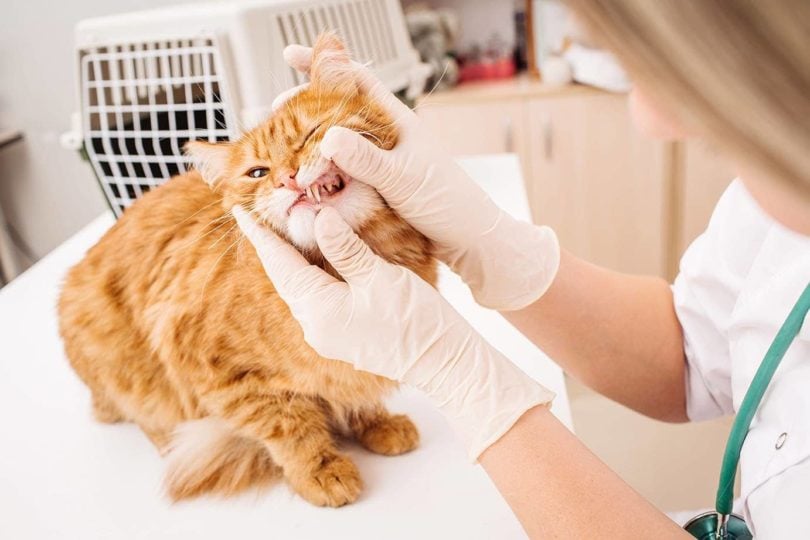
Dental care is just as important for our pets as it is for humans. Tooth loss, gingivitis, and other serious dental illnesses can seriously impact your cat’s quality of life. Cats don’t often show pain so it will be up to you to keep a close eye on their teeth to watch for any potential issues. Inflamed gums, broken teeth, and chronic bad breath are just some of the things you should watch for as a concerned pet parent. Many of these issues can be prevented by instilling good oral hygiene practices into your cat’s life. Continue reading to learn 8 ways you can help keep your cat’s teeth healthy.
The 8 Tips for Clean Cat Teeth
1. Annual Checkups
One of your first lines of defense to keeping your cat’s teeth healthy is her annual checkup with your veterinarian. During your visit, your vet will not only check your cat’s overall health but will also inspect her teeth and gums. They will check for signs of gingivitis, periodontal disease, broken teeth, tartar, and loose teeth.
If your cat’s teeth and gums are showing signs of gingivitis or periodontitis (an infection of the structures that support the teeth in the jaw), your vet will likely recommend a veterinary dentist appointment. The best way to prevent small issues from escalating is professional dental cleaning. These cleanings will likely cost anywhere from $200-500 dollars but can save your feline’s oral health. Dental issues that go unchecked can lead to serious health issues and loss of teeth.
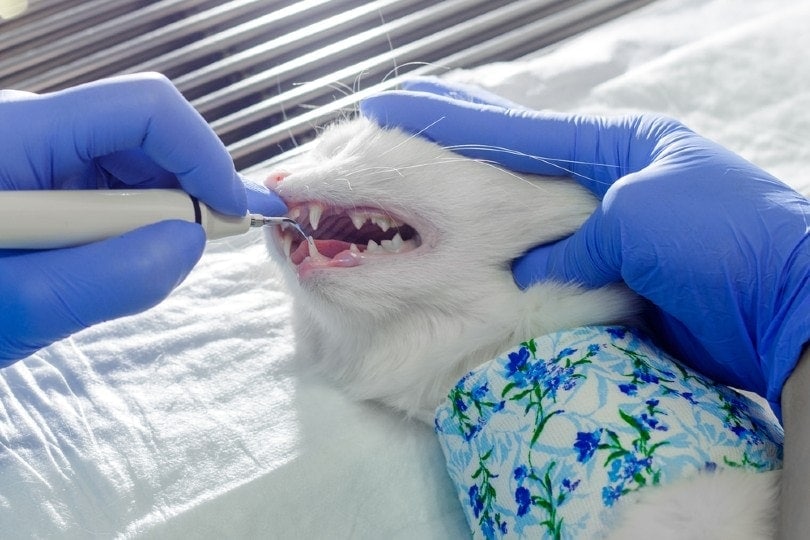
2. Dental Diets
While you’re at your cat’s annual checkup, ask your vet about a special dental diet. What a cat eats can help maintain their teeth and their overall health. Cats with oral health issues or dental diseases, such as periodontitis, will likely benefit from a prescription diet.
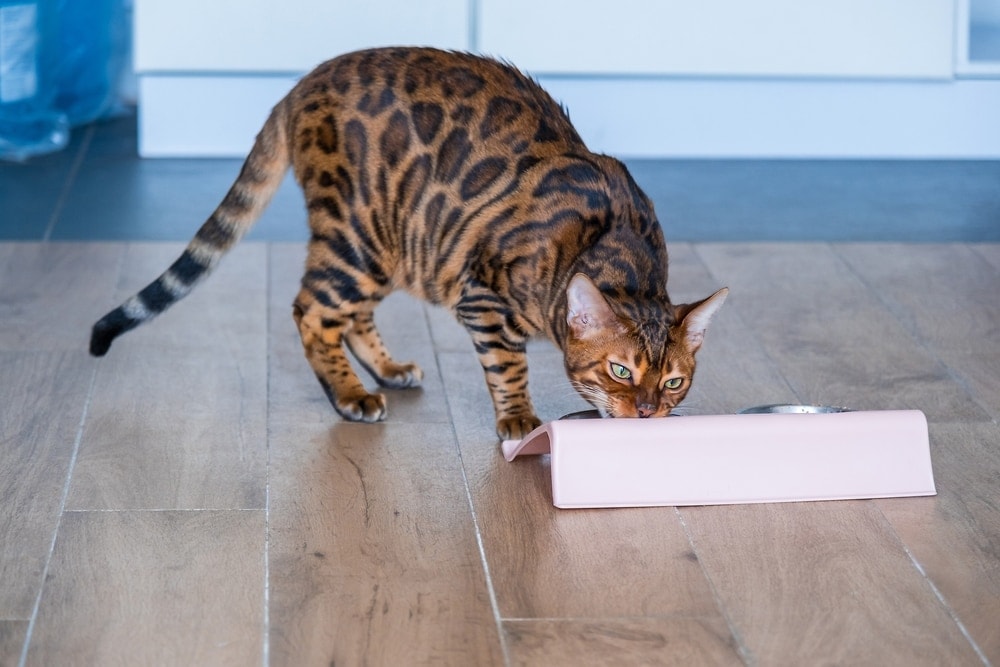
3. Tartar Fighting Treats
There are special treats available to help fight tartar buildup in your cat’s teeth. The Veterinary Oral Health Council (VOHC) has a standard for oral health, and you should look for products that have their stamp of approval. Purina DentaLife and Greenies are just two of the tartar control treats on the market that have the approval of the VOHC.
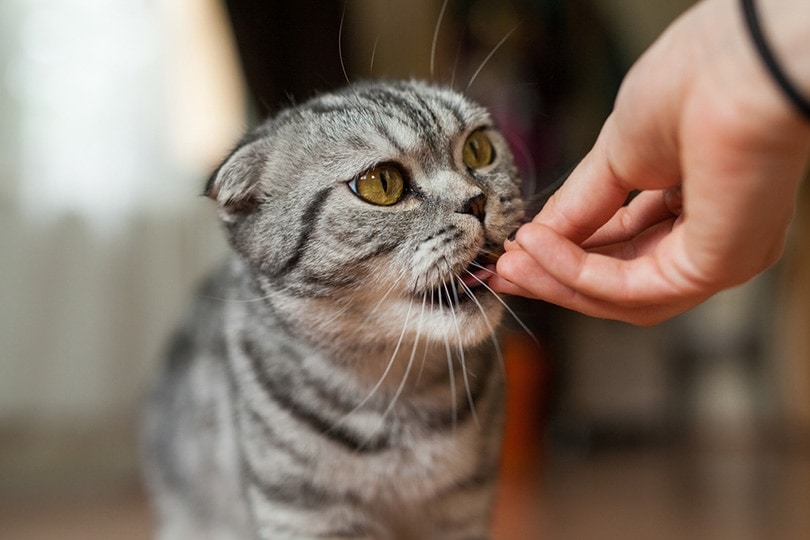
4. Brush Their Teeth
We know that brushing your cat’s teeth sounds like a horrible idea, but it is for her own good. The American Veterinary Medical Association (AVMA) recommends brushing your cat’s teeth daily. If you have a kitten, start by using some gauze and pet toothpaste to get them used to the sensation and the taste. As they grow, they will likely submit to their daily brushing because it’s just part of their routine.
Older cats may not want to submit to brushing at first. Using a pet toothpaste in a flavor they enjoy, such as C.E.T. Enzymatic Dog & Cat Poultry Flavor Toothpaste, will help make the brushing experience a more positive experience. If you just can’t get your cat to submit to brushing, there are brushless oral care gels, such as Oratene Brushless Enzymatic Oral Care Therapy Dental Gel, available for your cat. Apply it twice daily after meals to help keep your cat’s teeth healthy.
5. Take Care of Their Gums
Many dental illnesses start in the gums of cats. Normal gums are pink and healthy-looking with no redness indicating irritation. When you brush their teeth, massage their gums to promote circulation. If your cat’s gums are red and inflamed, make an appointment with your veterinarian immediately to prevent progression to periodontitis, tooth decay, and tooth loss.
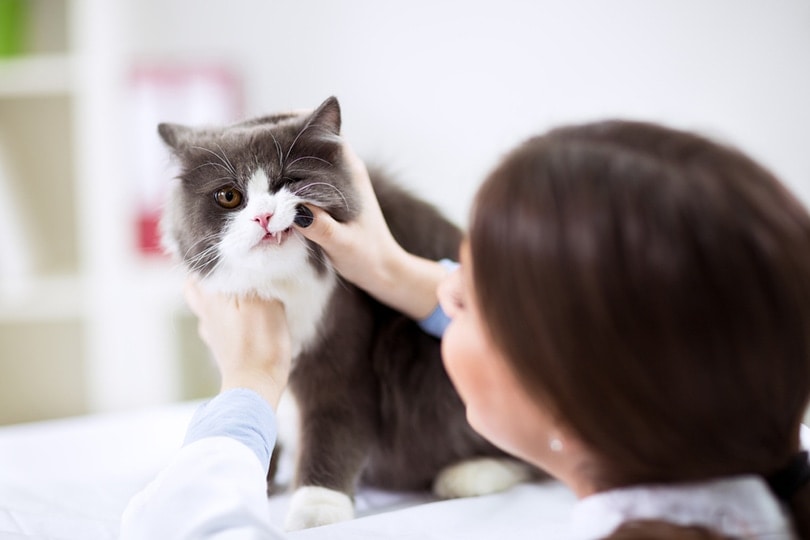
6. Give Your Cat Dental Toys
In the wild cats are predators and often end up chewing on the bones of their prey, which removes tartar to keep their teeth healthy and strong. Domesticated felines need some help in this department as most do not hunt because they’re strictly indoor cats. Dental cat toys are available, such as Petstages Dental Banana Cat Chew Toy with Catnip, to simulate the chewing behavior of their wild counterparts. It’s important to make sure that toys are not too hard, so your cat doesn’t wind up with broken teeth.
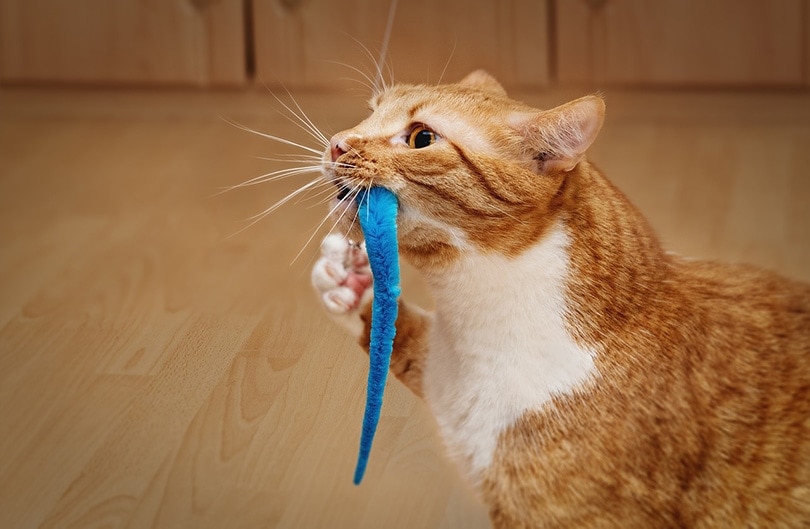
7. Treat Bad Breath
If your cat is drooling and has bad breath, take them to the vet to be checked out. These can be a sign of periodontal disease and your cat could be in danger of losing the teeth. Your vet will work with you to come up with an appropriate treatment plan.
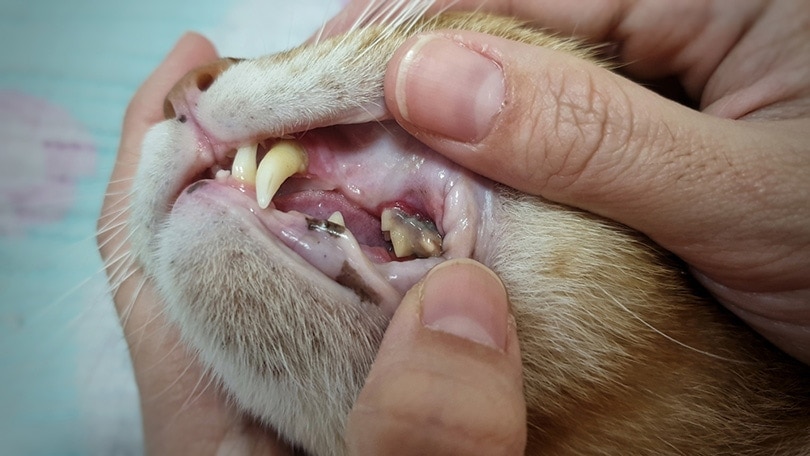
8. Enhance Their Fresh Water
Another trick that might help maintain dental health is enhancing your cat’s drinking water. You can add a dental additive to your cat’s water. Oratene Brushless Oral Care Water Additive for Dogs & Cats contains enzymes that work together to reduce the bacteria that cause bad breath and inhibits plaque formation by making it water-soluble so it can’t bind to the tooth.
It is recommended to provide the cat with a second alternative of plain, fresh drinking water so your cat doesn’t avoid drinking entirely due to the taste.
Conclusion
Dental hygiene is important to help keep your cat healthy. Tartar buildup that goes unchecked can lead to a host of dental diseases, such as gingivitis and periodontitis, and a life of pain for your cat. Taking your cat for annual checkups, brushing their teeth, and encouraging chewing are just some of the ways you can help prevent tooth loss and decay in your cat. Diet, treats, toys, and water additives are also some tools you can use to be proactive about dental health in your feline companion. Following some or all of these tips will help keep your cat’s teeth and gums healthy for years to come.
Featured Image Credit: PRESSLAB, Shutterstock



